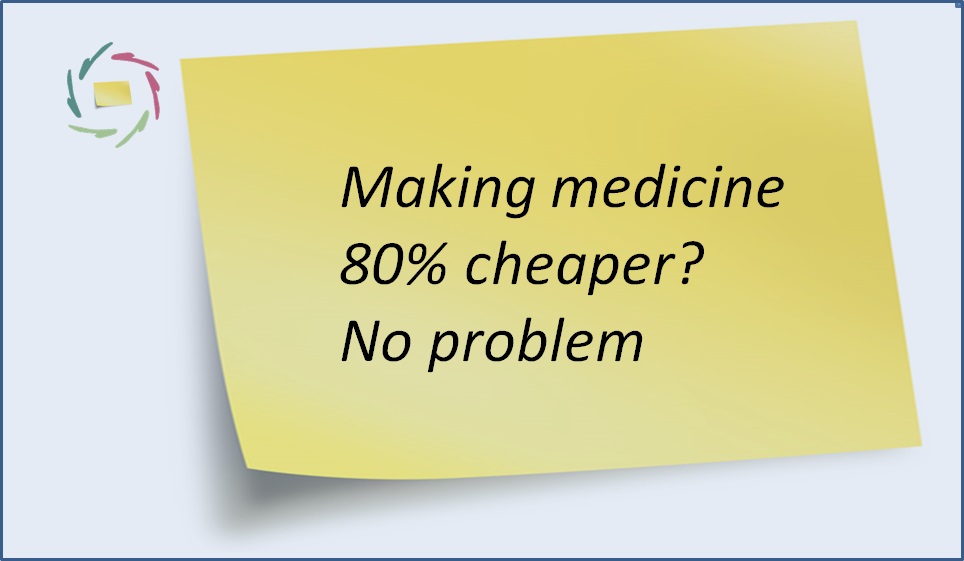55. Making medicine 80% cheaper? No problem

Health is money (and vice versa). At least, that seems to be the message if you read the world in a pharmaceutical company’s handbook. The problem is that money is to many people still a rather scarce commodity. In the US, 30% of personal bankruptcies are due to the out-of-own-pocket costs of medical care. In addition to this, the state-supported safety net gnaws away at the budget of many nations.
◊◊◊
Looking at this world and its peculiar division of all kinds of commodities, this really becomes quite a problem. Making medicine 80% cheaper would in the light of all this, not be a bad thing to do. What then if it were obvious to you (as it is to me) that this endeavor can be accomplished right now?
◊◊◊
Would you say: I don’t care?
◊◊◊
If not, then let me explain how I come to my 80%.
◊◊◊
It’s a well-known secret in the proper milieus that if you put all present-day medication together, the true placebo-effect accounts for more than half of the total effect. For simplicity’s sake, take 50%. In other words, half of the effect is due to the ‘inner strength’ of the person who takes the medication. That is: medication is not needed for this, if you find the proper means to reach that ‘inner strength’ in another way. Getting to this, one can also envision that in half of the cases, medication (and its cost and side effects) will not be first choice anymore.
◊◊◊
Moreover, this ‘inner strength’ is of course to be used preventively as well. Meaning that with proper use, even the need for any possible medication will be inexistent in many cases where it leads to huge costs today. My guess is that this can take care of another 30%. Together: 80%. Again: if you find the proper means to reach ‘inner strength’ in another way. Well…
◊◊◊
That’s what I have been doing for quite some years now.
I’ve named it ‘autosuggestion’.
◊◊◊
In the AURELIS® project, I’ve put together a lot of domains for which I have developed autosuggestion techniques in what I think to be a very sensible, completely non-aggressive and open way. Together, they encompass a field that is at least as wide as that of all medication together. So: an answer is here. Now.
◊◊◊
Do you think this is self-promotion?
I don’t mean to and I don’t care.
◊◊◊
It’s very good that we have all the wonderful medication that has been developed lately. Therefore, let’s use it well. But: ‘more is better’ is not the case here. Moderation is better. The best cure by far, is the patient himself.
◊◊◊


